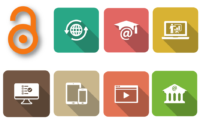
New ASU accessibility service lets students get files in more formats
Students at Arizona State University can now download class documents as files formatted for screen readers, braille or MP3 audio, the school announced Thursday, a service university officials said will make digital course content more accessible for all students. Ally, the new tool from learning management system provider Canvas, not only scans content and converts […]















